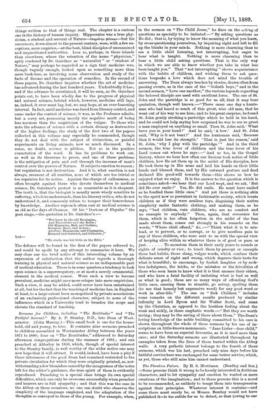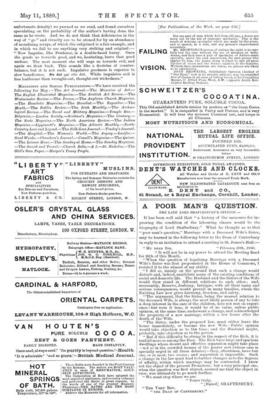The Phantom Future. By H. S. Merriman. (Bentley and Son.)
ŌĆöSome persons think it wrong to be keenly interested in fictitious characters, and to let sympathy and emotion be wasted on mere creations of the imagination ; and to these persons this is a novel to be recommended, as unlikely to tempt them into transgression against their principles. Whatever interest it containsŌĆöand some there must surely be, or Messrs. Bentley would not have published itŌĆöis too subtle for us to detect, so that (owing to our
unfortunate density) we yawned as we read, and found ourselves speculating on the probability of the author's having done the same as he wrote. And we do not think that deficiencies in the way of " go " and vivacity are to be atoned for by an abundance of moralising scraps, of which the subjoined is a fair example, and in which we fail to see anything very striking and original :ŌĆö " Now Impulse, like Prudence, is a double-faced hussy. Once she goads us towards good, and we, hesitating, leave that good undone. The next moment she will urge us towards evil, and again we draw back. This sounds like a doctrine of counter- balance, but it is not such. Impulsive goodness is superior to slow beneficence. Biz alai qui cito dat. While impulsive evil is less loathsome than wrought-out, thought-out wickedness."







































 Previous page
Previous page